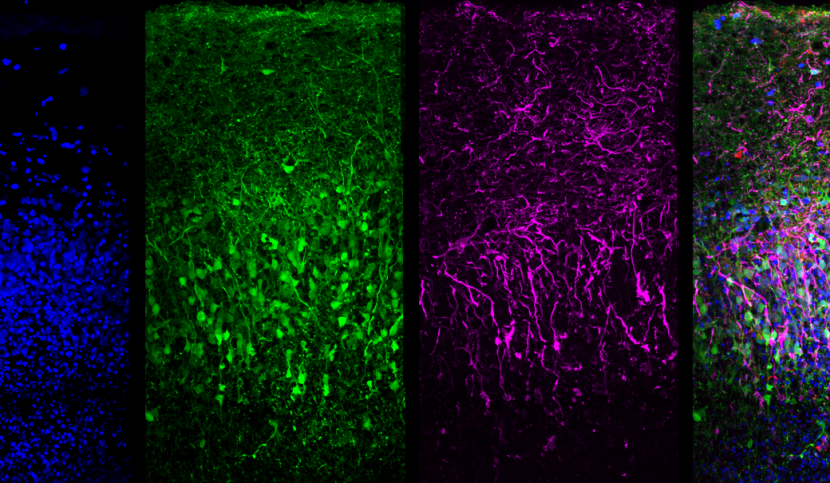A motor circuit approach linking genes to behavior in Parkinson’s disease.
The major cross-functional project Deep Brain Stimulation (DBS) is an exciting collaborative, interdisciplinary and multi-species initiative at the Paris Brain Institute. By bridging approaches from human genetics, cellular neurobiology, computational approaches, physiology of motor circuits from genetic model organisms to humans, our aim is to build novel strategies to stimulate resilient motor circuits in Parkinson’s disease.
The originality of the DBS project lies in its interdisciplinary approach involving duos of researchers from different fields of neuroscience with very different backgrounds who will closely train the next generation of postdoctoral fellows.
Collective Interest Projects (CIPs) – Collaborative, interdisciplinary, innovative & transformative
We are now recruiting postdoctoral fellows dedicated to individual Collective Interest Projects, co-supervised by experts from diverse fields. These early-career researchers will receive interdisciplinary training, spanning genetics, cellular physiology, imaging, optogenetics, behavior, or modeling. We offer world class research facilities and double supervision from leaders across fields of neuroscience. You would be part of a dynamic community of young researchers within a highly collaborative environment!
The DBS project has 3 main aims:
Aim 1
Investigate uncharacterized mutations in PD patients and validate them in genetic model organisms (nematodes, flies, zebrafish) and human-induced pluripotent stem cells (hiPSCs).
3 Paris Brain Institute teams, 7 PIs: Brice, Corti, Lesage, Ravassard, Bizat, Sitt, Wyart
Aim 2
Link candidate PD mutations to dysfunctions of dopaminergic neurons using human in vitro 3D self-assembled systems called assembloids.
5 Paris Brain Institute teams, 6 PIs: Ravassard, Rebola, Corti, De Juan-Sanz, Hadjeconomou, Wyart
Aim 3
Investigate markers for resilient motor circuits in the MLR that can trigger locomotion and that could be specifically stimulated using genetic-based non-invasive approaches such as ultrasounds and sonogenetics.
7 Paris Brain Institute teams, 8 PIs: Wyart, Lau, Karachi, Welter, Pouget, Bacci, Ravassard, Rebola
Development of innovative technological methods: sensors, fluorescent dynamic imaging, functional ultrasounds.
Collaborating with several Paris Brain Institute Platforms:
- iGENSEQ (sequencing),
- ICM.QUANT (cell imaging)
- Neuro-CEB
- CENIR (MRI),
- DAC,
- HISTOMICS (Histology),
- ePHYS (Electrophysiology),
- PHENOPARC.
Collaborations with the industry: companies 3i (IDV, Paris) and Karthala (IBENS, Paris), to design new imaging solutions for monitoring and manipulating neuronal population activity.
To follow the DBS project on Twitter, click here.







